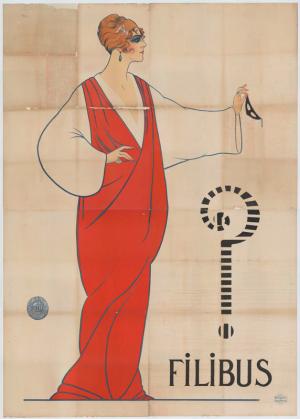I wrote about the delightful 1915 action caper Filibus a few years ago: a wonderful gender-bending tale of intrigue and adventure, one of my favourite silents. In particular, I praised the performance of Cristina Ruspoli as the title character Filibus, and her alter egos the Baroness de Croixmonde and the Count de la Brive.
“Who is Filibus? What is she doing?” asked contemporary adverts for the film. This question now takes on a deeper meaning: recent research by Milestone Films in preparation for their release of the restoration has revealed that the title character was not, in fact, played by Ruspoli—she is instead portrayed by Valeria Creti.
















